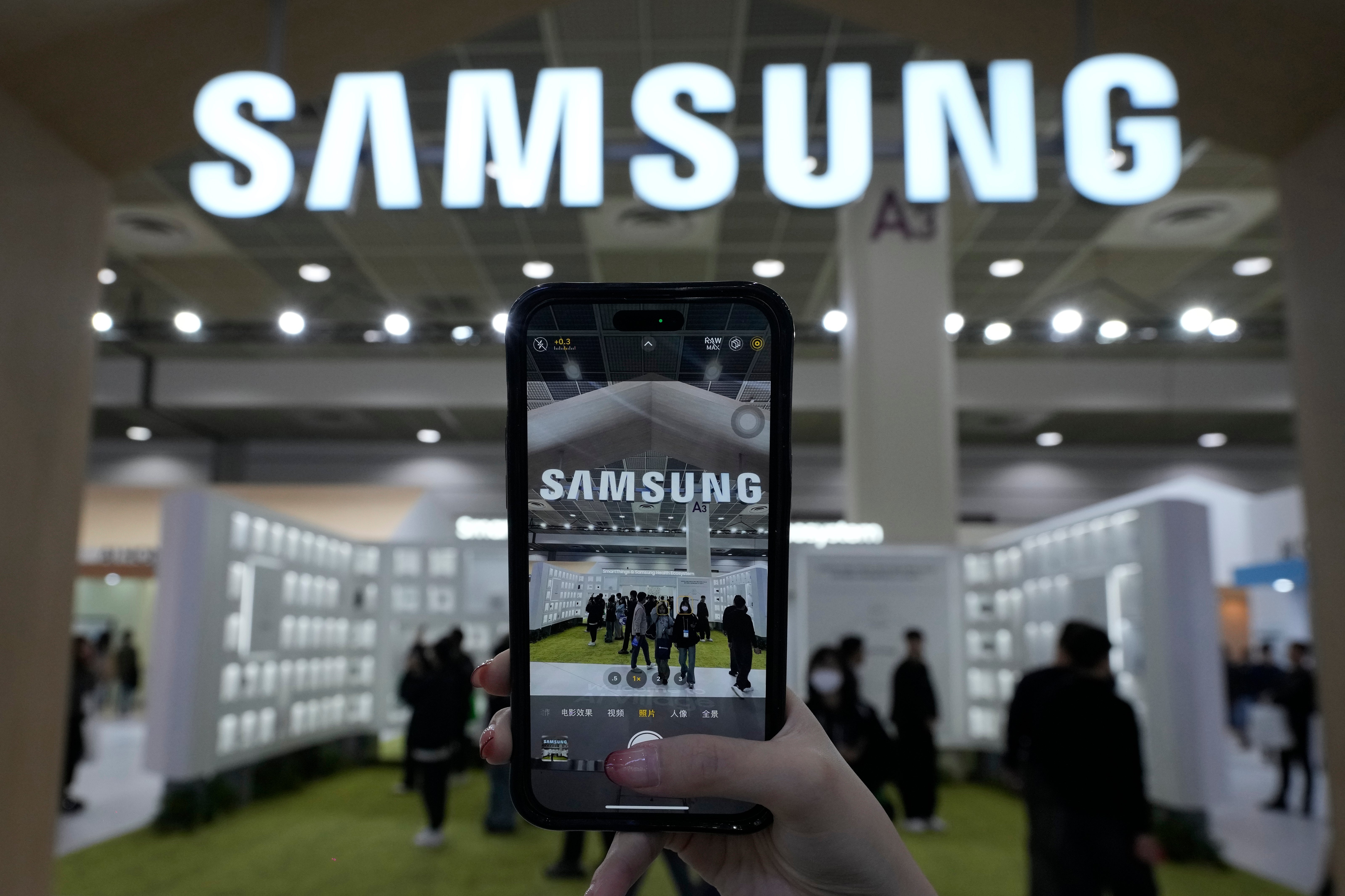Samsung reports 'major' progress in supply deal for AI chips
Samsung Electronics has reported progress on a major supply deal for artificial intelligence-focused chips, aiming to reassure investors following a slowdown in semiconductor profits during the last quarter

Samsung Electronics on Thursday reported progress on a major supply deal for artificial intelligence-focused chips, aiming to reassure investors following a slowdown in semiconductor profits during the last quarter.
The South Korean technology giant said its operating profit for the July-September period increased by more than 277% from a year earlier to 9.18 trillion won ($6.65 billion). But the figure represented a 12% decline from the second quarter, which Samsung attributed largely to one-off costs, such as provision of employee incentives in its computer chip business, and the effects of a weaker U.S. dollar.
Samsung’s semiconductor division earned 3.86 trillion won ($2.8 billion) in operating profit during the quarter, rebounding from a deficit during 2023 but sharply declining from the 6.45 trillion won ($4.67 billion) it reported in the April-June period.
While Samsung saw solid demand for AI and server chips during the past quarter, its mobile chip business weakened as some customers adjusted inventories. The market was also affected by Chinese manufacturers’ increased supply of legacy memory products, the company said in a statement.
More critically, Samsung lagged behind key competitors such as SK Hynix in HBM3E, the latest generation of high bandwidth memory chips that are used to power AI applications.
During a conference call, Samsung Executive Vice President Jaejune Kim said the company recently made a “meaningful advance” in a qualification test process to provide its HBM3E products to an unspecified “major client,” a development he said could possibly drive up sales during the fourth quarter. Kim’s comments touched off speculation that Samsung was closing in on a supply deal with Nvidia, a major U.S. maker that designs advanced chips powering AI.
“In the fourth quarter, while memory demand for mobile and PC may encounter softness, growth in AI will keep demand at robust levels. Against this backdrop, the company will concentrate on driving sales of high-bandwidth memory and high-density products,” Samsung said.
Bookmark popover
Removed from bookmarks